OPS & TRAINING
PRACTICAL MEASURES TO ENSURE CONTINUITY IN SAF OPS
30 Jun 2021
The SAF is adopting a three-pronged strategy to prepare to operate in a COVID-19 endemic environment.
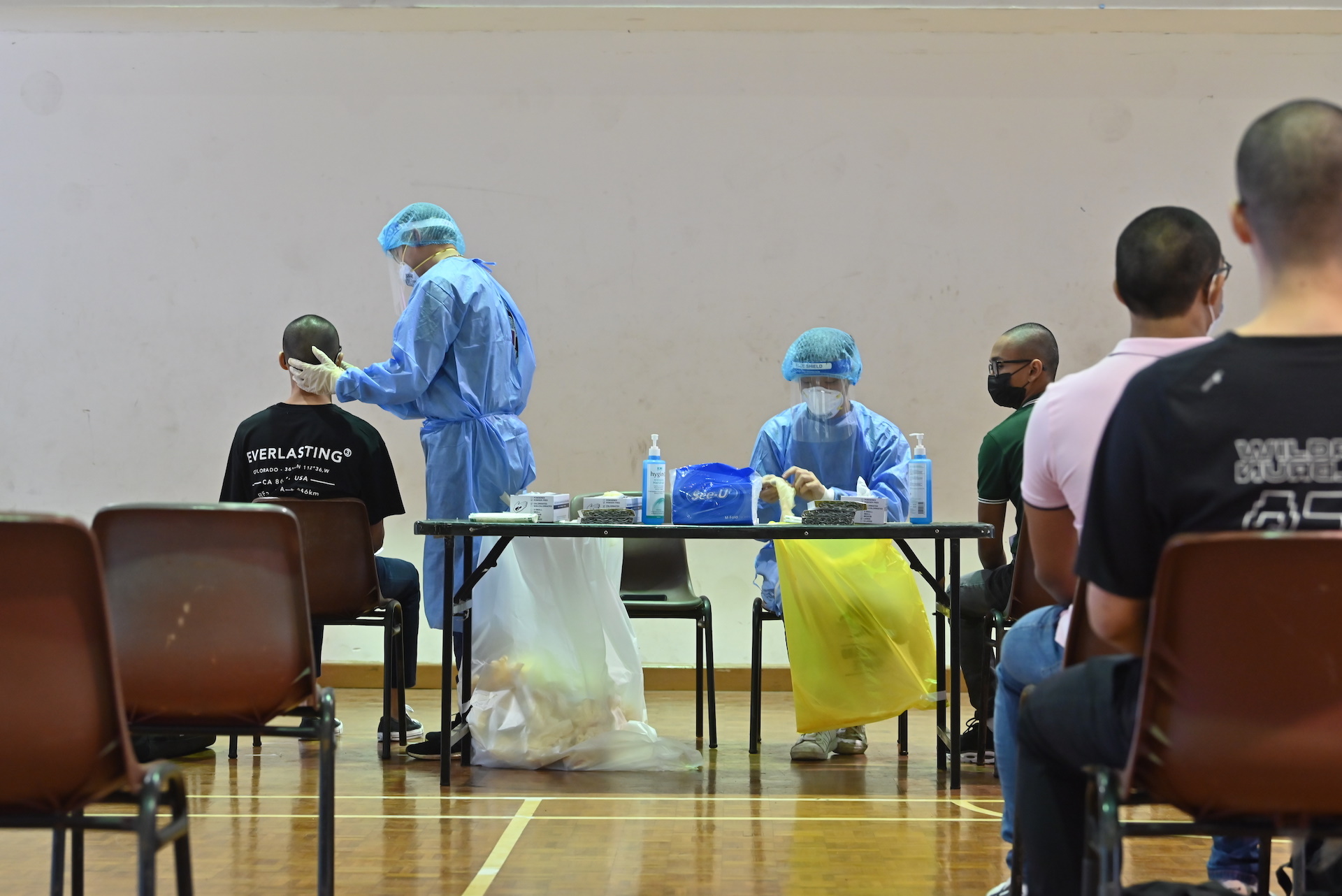
As the national stance on COVID-19 moves towards treating it as endemic, the Singapore Armed Forces (SAF) has made shifts to maintain continuity in its operations and to resume local and overseas large-scale, high-end training.
Its three-pronged approach involves vaccination; strengthened testing and surveillance; and cohorting.
For the Basic Military Training Centre (BMTC), this meant pre-entry swab tests for recruits, alongside strict measures during book-outs.
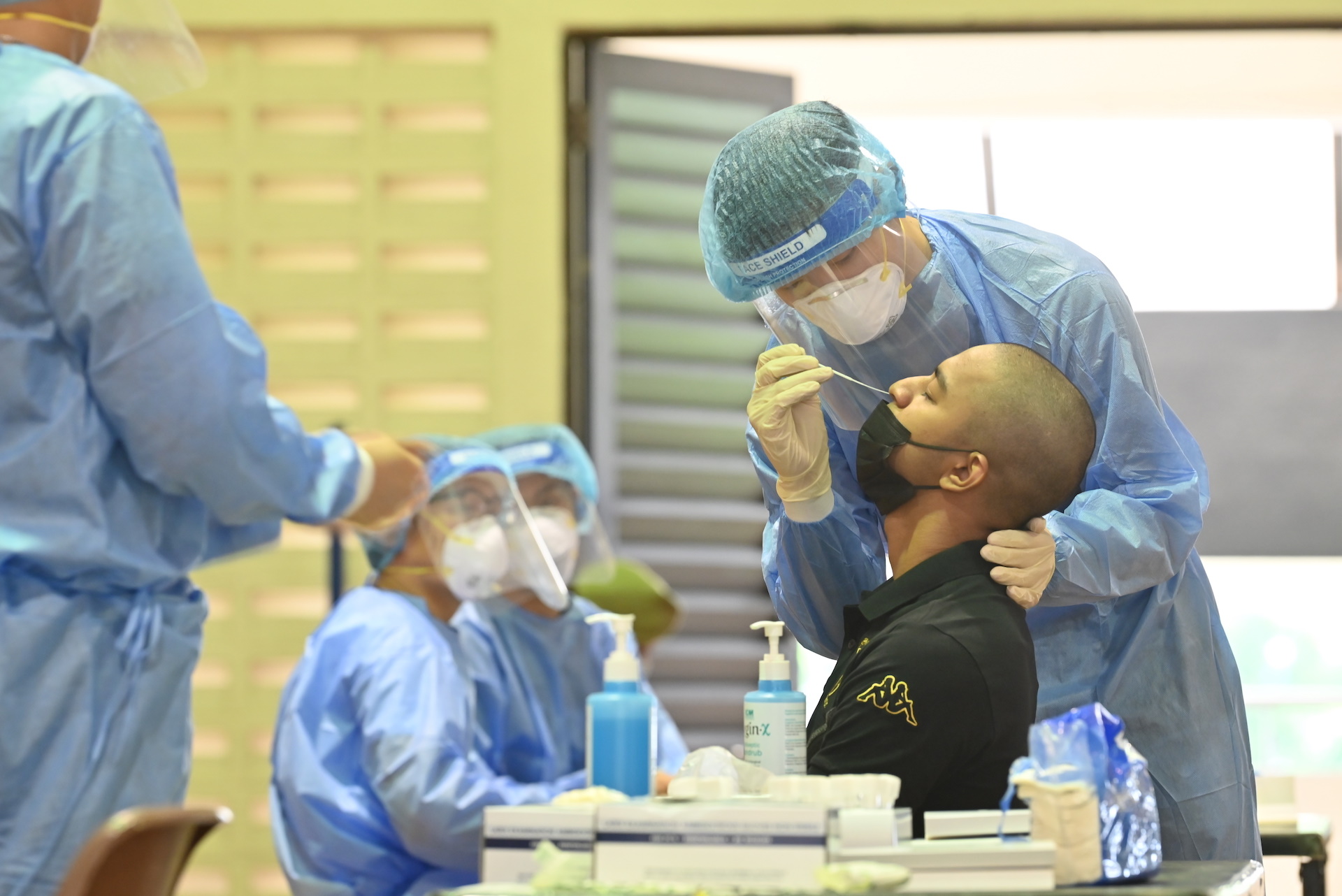
Currently, over 90 per cent of the Ministry of Defence and SAF personnel have received their first vaccine dose and will complete both doses by mid-July.
While this does not mean that they will not contract COVID-19 or be infectious, it reduces the risk and severity of the disease and the spread of the virus, said Defence Minister Dr Ng Eng Hen.
"Going forward, we will not need to close the training schools like BMTC… (and) we can avoid disruptions to NS activities," said Dr Ng during his annual SAF Day interview.
A robust COVID-19 management system in BMTC is also critical for ops readiness, added BMTC Commander, Colonel (COL) Yee Kok Meng: "BMTC is the SAF's critical starting point for the its force generation system, and is essential for the build-up of our operational units and future commanders."
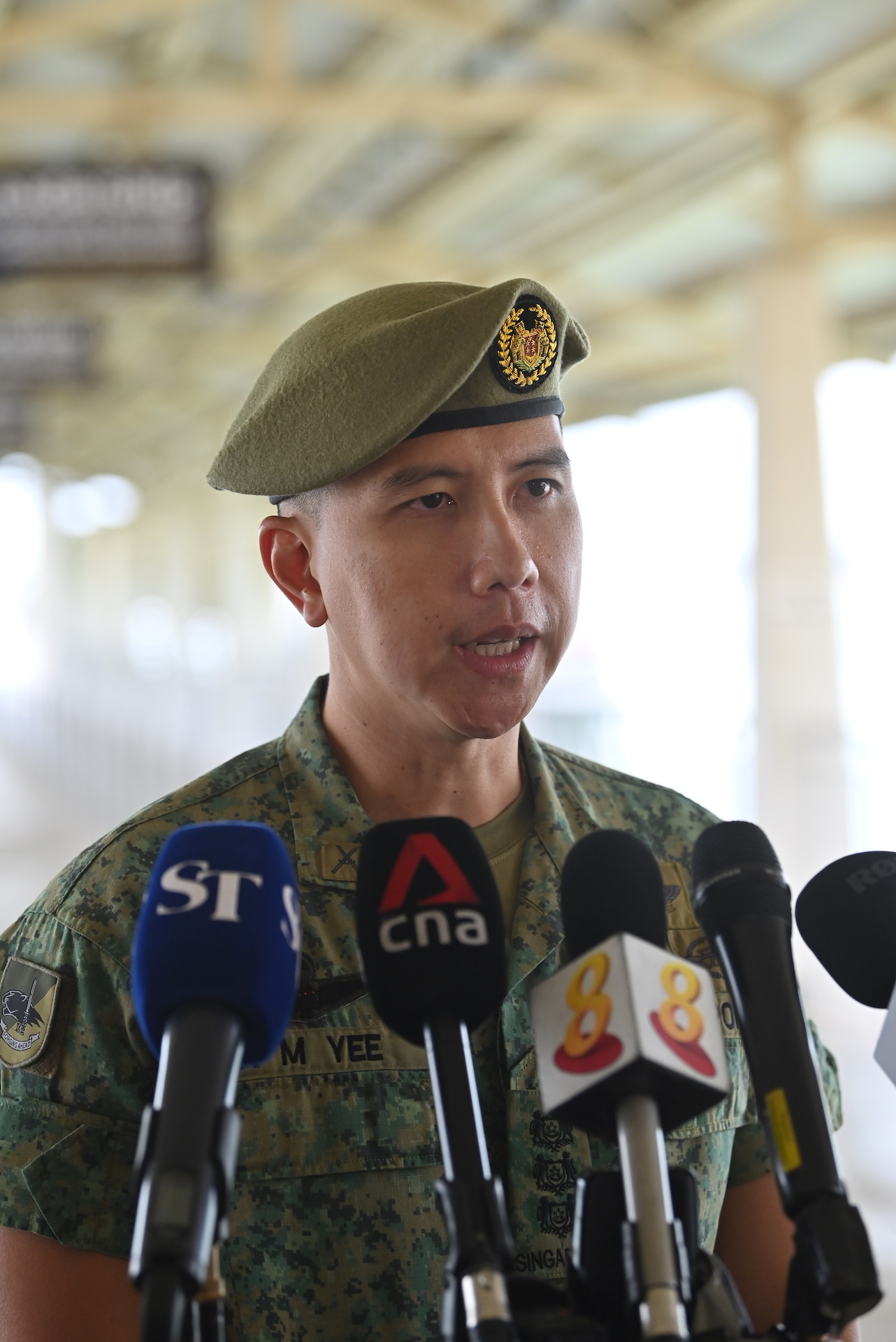
Protection for pre-enlistees
As part of the fight against COVID-19, BMTC has prioritised vaccination for its pre-enlistees and recruits.
The latest BMTC cohort received the first dose between 8 and 11 Jun at Selarang Camp, before enlisting on 29 Jun. They will be administered their second dose while in BMTC.
While the vaccinations are not mandatory, more than 90 per cent of recruits have opted to receive them.
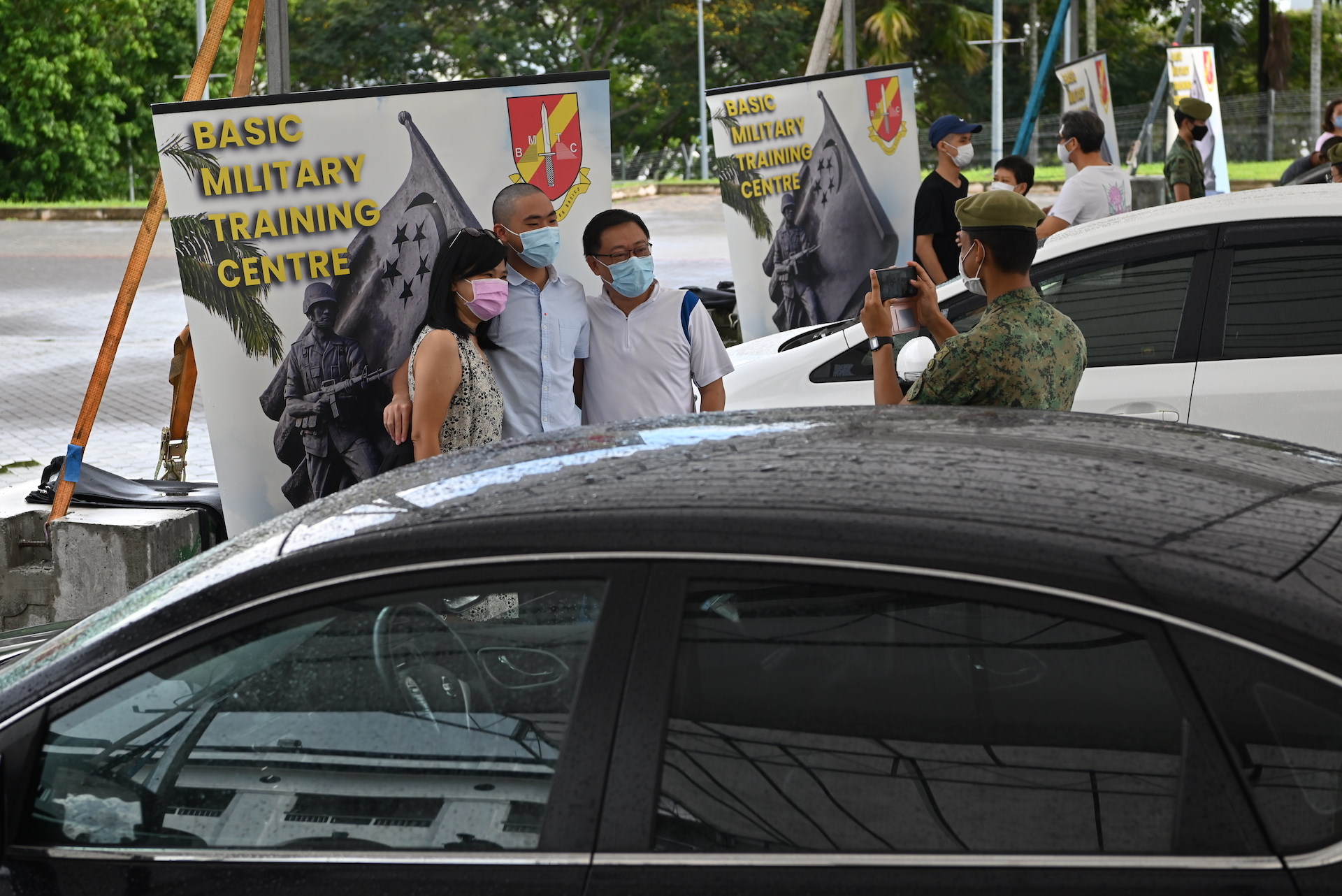
This was aided by engagement sessions held with pre-enlistees and their parents, before their vaccinations, said COL Yee.
"One of the school’s commanding officers and a medical officer (would be there), so that they can answer their questions, be it medical or process questions. This will allay the concerns from parents and pre-enlistees," he said.
On enlistment day, recruits also go through a pre-entry swab at Selarang Camp before heading to Pulau Tekong.
The SAF is also building its testing capabilities with faster and less invasive methods such as Deep Throat Saliva Point-of-Care Tests and Do-It-Yourself Antigen Rapid Test Kits. These allow for early detection in a more practical and sustainable manner.
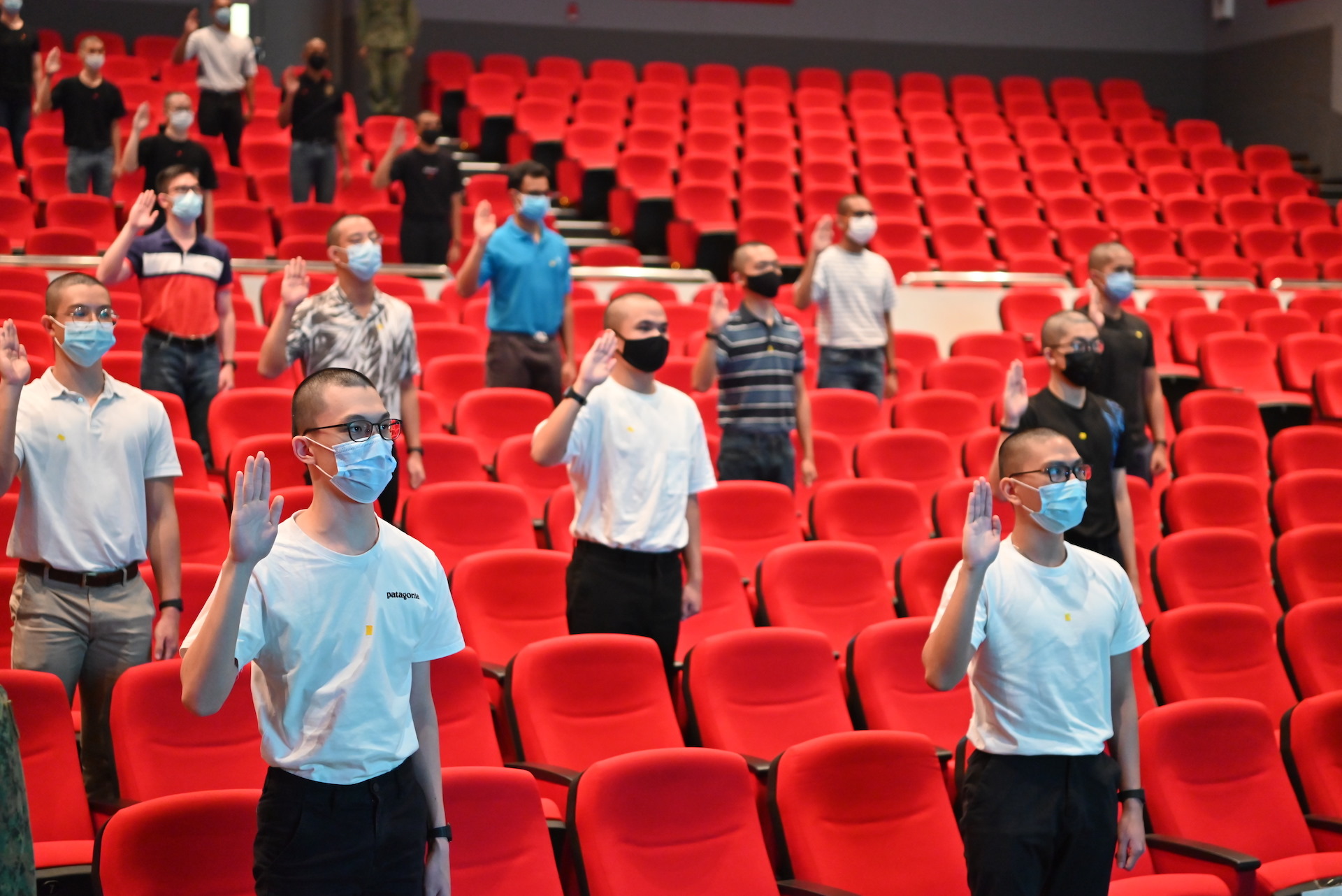
Measures in training
At BMTC, recruits continue to conduct training in section-level functional groups, with safe management measures in place.
Staggered meal times as well as book-in and book-outs times are also in place, with no intermingling between functional groups.
"We continue to do our training in small groups, such that if there is a positive case, we can keep the numbers small and ring-fence the group accordingly," said COL Yee.
In the event of a suspected case, the recruit would be sent to the medical centre immediately, while his group continues their training through online learning in their bunks, and have their meals brought to them.
Trainers who interact with different functional groups also undergo routine rostered testing every seven to 14 days.
BMTC has also started wastewater surveillance, as an additional way to monitor for signs of COVID-19.
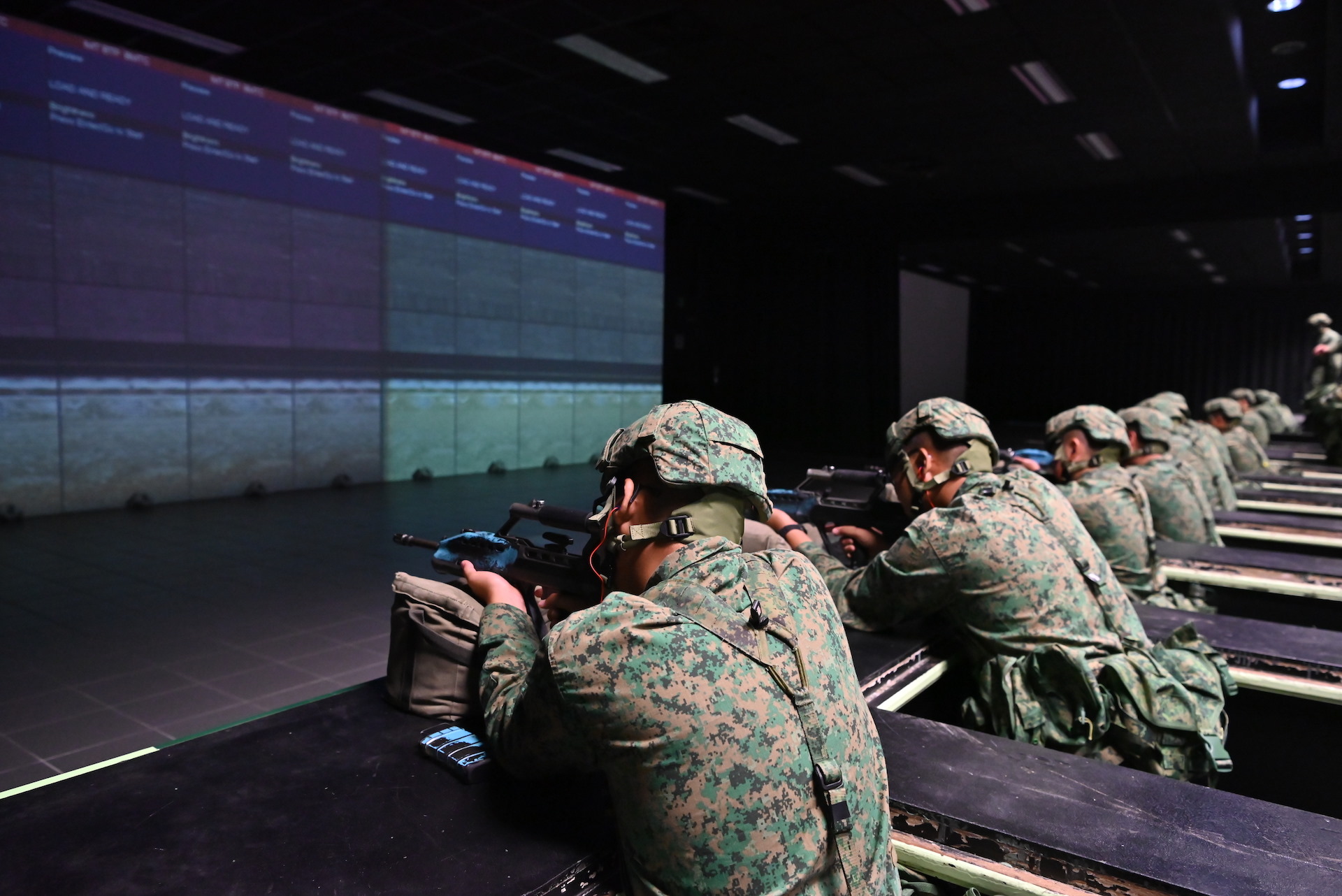
Book out, stay safe
Since the national Phase 2 (Heightened Alert) period, BMTC has issued the Stay Home Restriction Order for recruits during their weekend book-outs.
Commanders also call their recruits twice a day – once in the morning and once in the evening – to check on their temperature. Recruits are to inform their commanders if they head out for essential activities, such as getting meals.
This encourages recruits not to leave home except for essential trips, as there still lies the risk of community infections, said COL Yee.
He added that such restrictions will continue to be reviewed according to the national COVID-19 situation.
"I think everyone’s aim is of course to have zero COVID cases. But…we are prepared (that if) there is any suspected case, we are able to swiftly detect the case and have our own measures in place so that we can keep the number small, and continue training in an endemic COVID-19."
ALSO READ IN OPS & TRAINING
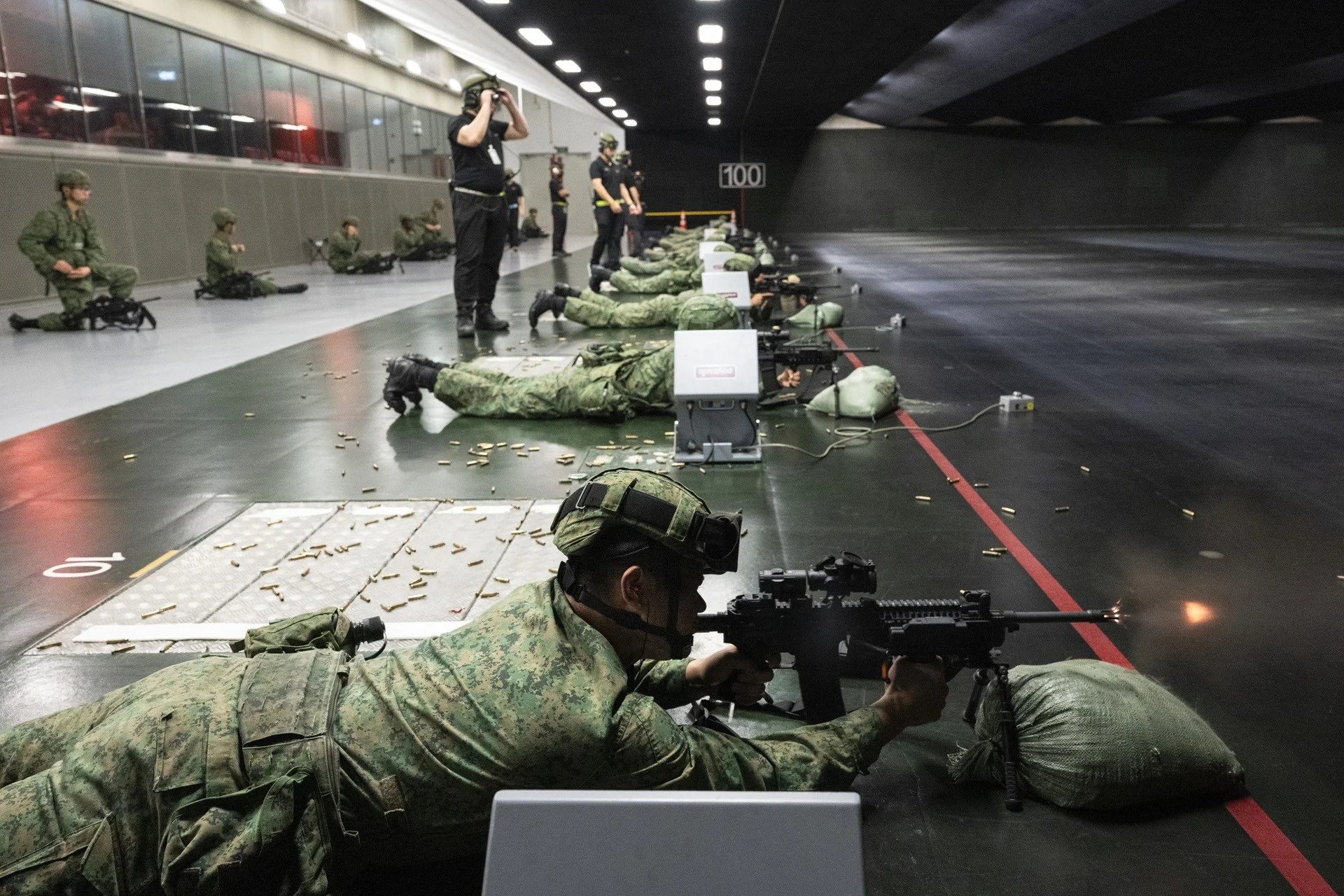
New firing range complex at Bedok Camp; Medical Classification System to be redesigned
27 Feb 2026
To train soldiers for a more complex environment, the SAF will build a new Multi-Mission Range Complex, as well as introduce opportunities for national servicemen to take on new roles, and more ways to volunteer.
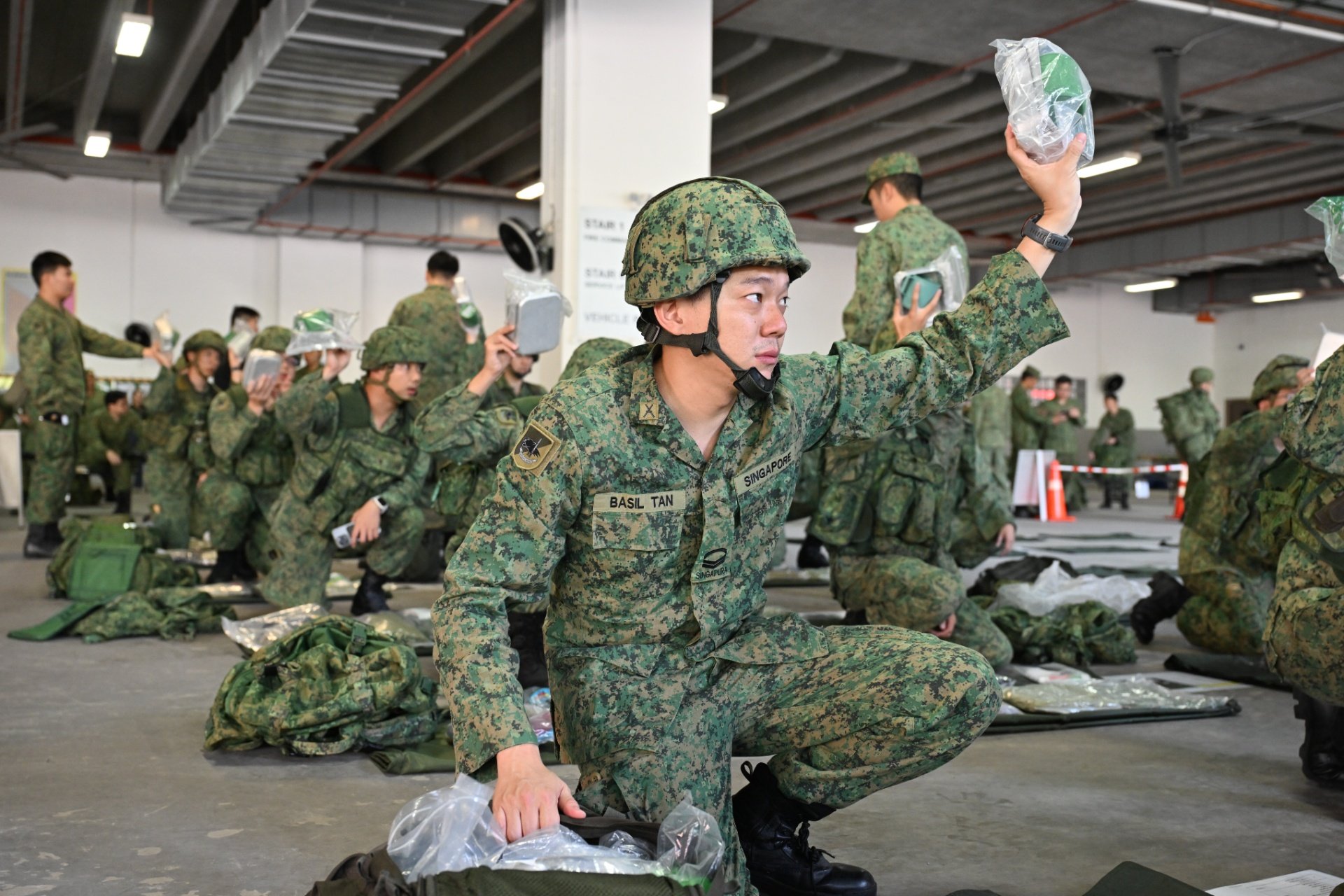
Reaffirming their commitment to defence
07 Feb 2026
Over 3,000 NSmen displayed their commitment to Singapore’s defence at a MOBEX in Selarang Camp.
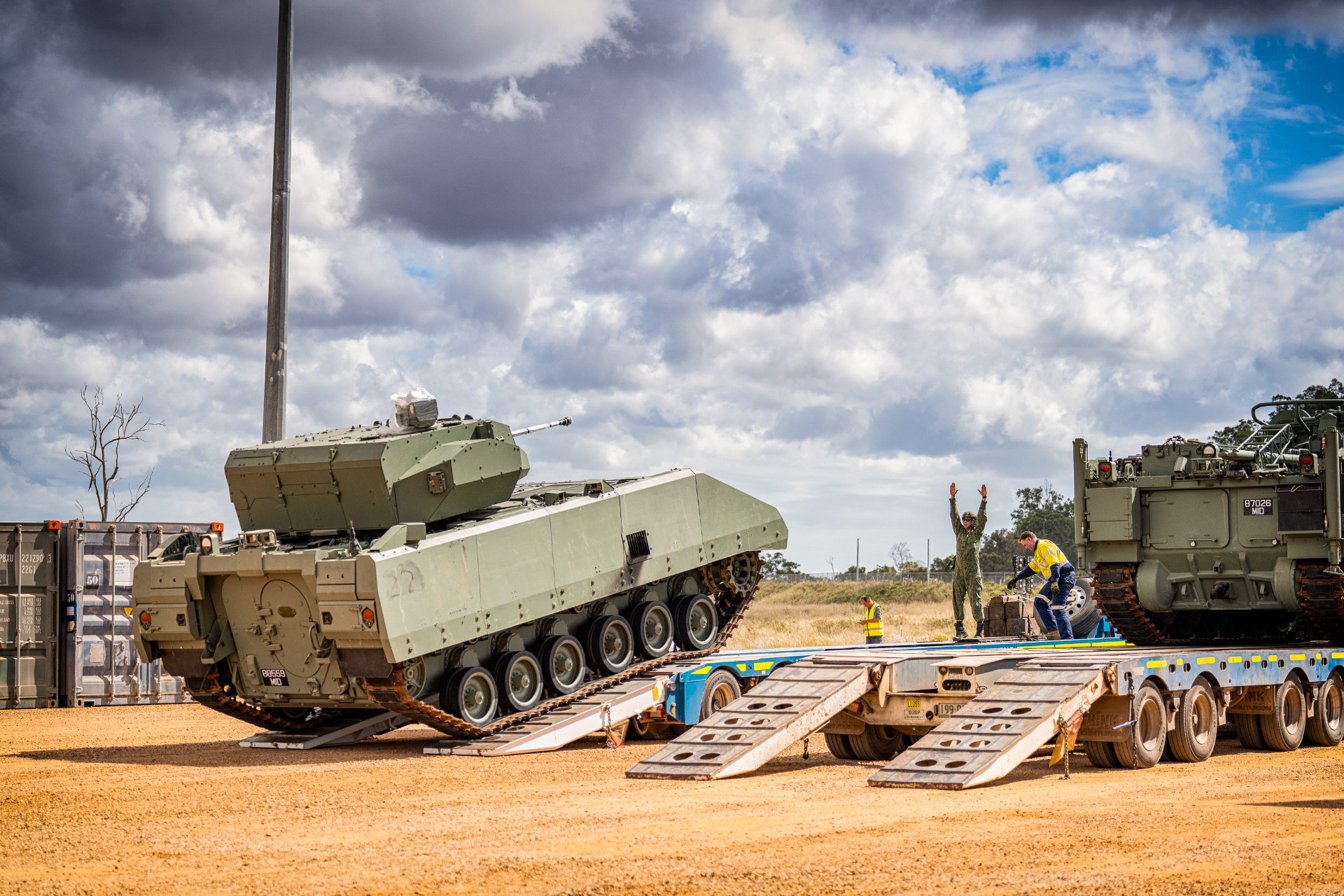
First in, last out at Ex Wallaby 2025
06 Nov 2025
Meet the teams who toil behind the scenes to enable the smooth conduct of the SAF’s biggest unilateral overseas exercise.


